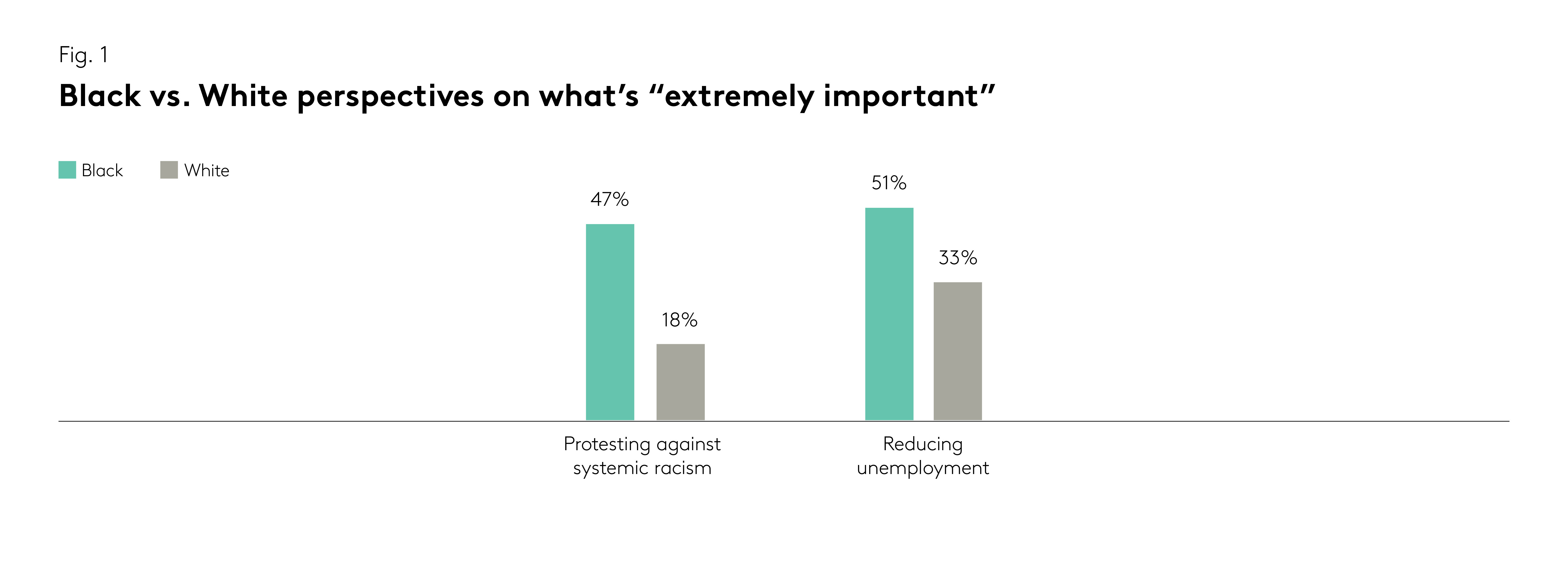Understanding the feelings and experiences of marginalized communities is fundamental to creating an authentic relationship with consumers. While the COVID-19 pandemic has disrupted normalcy throughout the United States, Black Americans in particular are experiencing a disproportionate share of negative health and financial outcomes. In addition, they also find themselves at the heart of a re-energized social justice movement protesting systemic racism. To gain an understanding of the current emotional state of Black Americans, Kantar has conducted research to uncover their feelings surrounding these two crises gripping American society.
Greater financial concerns
Black Americans are experiencing an unbalanced share of health and financial uncertainty due to the COVID-19 pandemic compared to their white peers. Contributing factors include the types of occupations Black Americans tend to hold and underlying health conditions that affect many in the Black community. Underscoring these trends, Kantar has found that Black Americans are far more concerned about their financial security than white Americans, with more than half of Blacks indicating that reducing unemployment is “extremely important” compared to just a third of whites. Adding pressure to the situation, 49% of Blacks indicate they have just enough financial savings to maintain their lives compared to 38% of whites.
The toll of social injustice
In addition to health and financial concerns, social injustice and combating racism is of significantly greater concern to Black Americans than white Americans. Kantar finds that 47% of Black Americans believe protesting against systemic racism is “extremely important” while just 18% of white Americans agreed.

To explore this issue further, Kantar conducted intuitive association exercises among Black Americans to uncover deeper emotional connections surrounding the resurgence and prominence of the Black Lives Matter protests. Overall, when thinking about the protests, Black Americans remain united and hopeful. However, feelings of helplessness and anger remain highly salient as well, suggesting Black Americans are facing an emotional tug of war between feelings of optimism towards the movement and exhaustion from the fight for justice. Despite this emotional conflict, Black Americans remain hopeful, with 55% reporting they feel their life is moving forward.
Expectations of brands
The days when brands could quietly sit on the side lines of racial issues are over. Kantar data shows that 56% of Black consumers feel as though their cultural background has a large influence on their purchase decisions, while 45% expect brands to take a stand in support of the protest movement.
Brands should be bold and start leading meaningful conversations with their consumers to better understand the emotions, needs and expectations of a diverse customer base.
